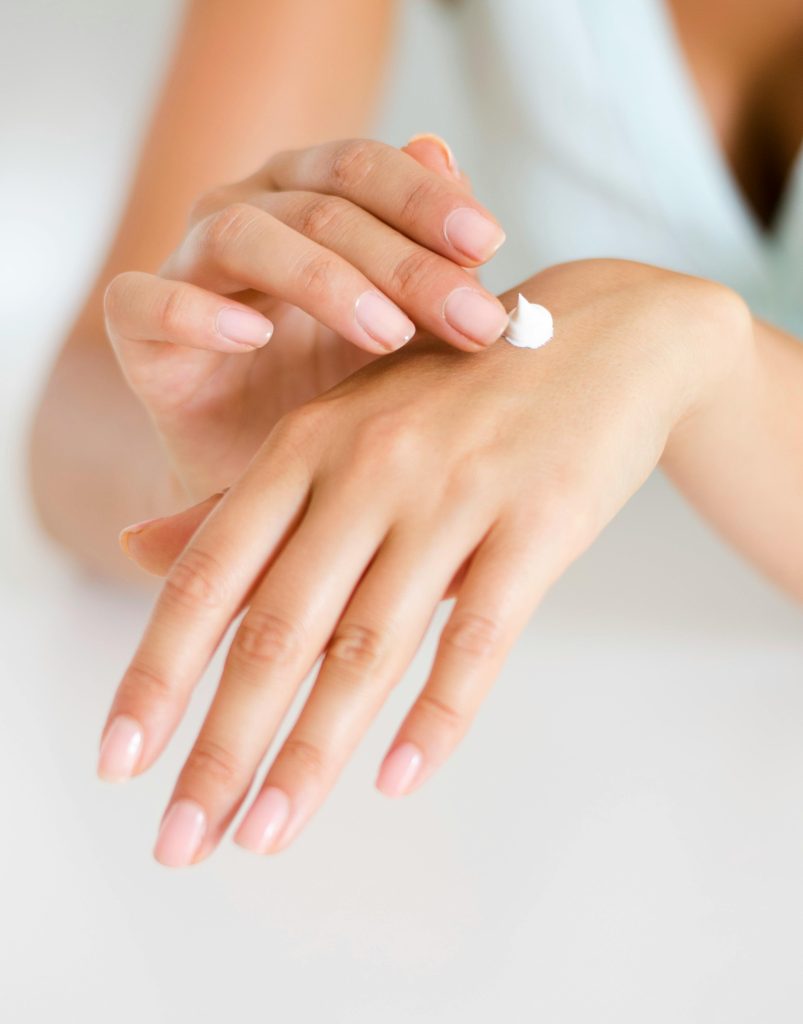Delhi’s Air Pollution Crisis: Safeguarding Your Skin in the Capital’s Toxic Hazare
The bustling metropolis of Delhi, known for its rich history and vibrant culture, now faces a formidable adversary – air pollution. As the city’s air quality index (AQI) continues to soar to alarming levels, residents are grappling with a myriad of health concerns, not least of which is the impact on their skin. The toxic cocktail of pollutants hanging in Delhi’s air poses a significant threat to skin health, accelerating aging, triggering various skin conditions, and robbing the skin of its natural radiance.
In this comprehensive guide, we’ll delve into the intricacies of how Delhi’s pollution affects your skin, explore effective strategies to protect and nourish your skin in this challenging environment, and highlight cutting-edge treatments that can help mitigate the damage caused by prolonged exposure to pollutants. Whether you’re a long-time Delhi resident or a newcomer to the city, this article will equip you with the knowledge and tools necessary to maintain healthy, glowing skin despite the capital’s pollution woes.
Understanding the Impact of Delhi’s Pollution on Skin Health
The relationship between air pollution and skin health is complex and multifaceted. Delhi’s polluted air contains a toxic mix of particulate matter, nitrogen dioxide, sulfur dioxide, and other harmful chemicals that can wreak havoc on your skin’s delicate balance. Let’s break down the various ways in which pollution affects your skin:
Accelerated Aging and Wrinkle Formation
One of the most visible impacts of pollution on skin is premature aging. The free radicals present in polluted air attack healthy skin cells, breaking down collagen and elastin – the proteins responsible for skin’s firmness and elasticity. This degradation leads to the formation of fine lines, wrinkles, and sagging skin, making you appear older than your years.
Increased Sensitivity and Irritation
Constant exposure to pollutants can compromise your skin’s natural barrier function, leading to increased sensitivity. This makes your skin more prone to irritation, redness, and inflammation. Many Delhi residents find themselves battling unexplained skin irritations that may be directly linked to the city’s poor air quality.
Clogged Pores and Acne Breakouts
The microscopic particles in polluted air can settle on your skin, clogging pores and trapping dirt and bacteria. This buildup often results in blackheads, whiteheads, and inflammatory acne. If you’ve noticed an increase in breakouts despite maintaining a good skincare routine, pollution could be the culprit.
Dullness and Uneven Skin Tone
Pollution robs your skin of its natural glow by interfering with its ability to renew itself. The accumulation of toxins on the skin’s surface can lead to a dull, lackluster complexion. Moreover, certain pollutants can trigger excess melanin production, resulting in dark spots and an uneven skin tone.
Dehydration and Compromised Skin Barrier
The harsh chemicals in polluted air can strip your skin of its natural oils, leading to dehydration. A compromised skin barrier is less effective at retaining moisture and protecting against external aggressors, setting the stage for a host of skin issues.
Understanding these effects is crucial in developing an effective strategy to combat pollution-induced skin damage. In the following sections, we’ll explore practical steps and advanced treatments to help you maintain healthy skin in Delhi’s challenging environment.
Essential Skincare Routine for Pollution Protection
Combating the effects of pollution on your skin requires a well-thought-out skincare routine. Here’s a step-by-step guide to help you build a robust defense against Delhi’s polluted air:
Double Cleansing: The Foundation of Clean Skin
In a polluted environment, a single cleanse is often not enough to remove all the grime and toxins that accumulate on your skin throughout the day. Adopt a double cleansing routine for thorough purification:
- Start with an oil-based cleanser to dissolve oil-soluble impurities like sebum, sunscreen, and pollutants.
- Follow up with a gentle, water-based cleanser to remove any remaining debris and water-soluble impurities.
This two-step process ensures that your skin is truly clean without stripping it of its natural oils.
Exfoliation: Sloughing Away Pollution Residue
Regular exfoliation is crucial for removing dead skin cells and pollution particles that can clog pores. However, be cautious not to over-exfoliate, as this can damage your skin’s protective barrier. Aim for gentle exfoliation 1-2 times a week using either:
- A chemical exfoliant containing alpha-hydroxy acids (AHAs) or beta-hydroxy acids (BHAs)
- A mild physical scrub with fine, non-abrasive particles
Hydration: Replenishing Moisture Barriers
Pollution can severely dehydrate your skin, making a good moisturizer essential. Look for products that:
- Contain humectants like hyaluronic acid to draw moisture into the skin
- Include occlusive ingredients to lock in hydration
- Feature ceramides or fatty acids to strengthen the skin barrier
Apply your moisturizer to slightly damp skin for better absorption.
Antioxidant Protection: Your Skin’s Pollution Shield
Antioxidants are your skin’s best defense against free radical damage caused by pollution. Incorporate antioxidant-rich products into your routine:
- Vitamin C serums for brightening and protection
- Vitamin E for moisturizing and healing
- Niacinamide for strengthening the skin barrier
- Green tea extracts for soothing inflammation
Apply these products after cleansing but before moisturizing for maximum efficacy.
Sunscreen: The Non-Negotiable Step
Even on smoggy days, UV rays can penetrate through pollution and damage your skin. A broad-spectrum sunscreen with at least SPF 30 is crucial. Look for formulations that also offer protection against blue light and infrared radiation for comprehensive coverage.
By following this comprehensive skincare routine, you create a strong foundation for protecting your skin against Delhi’s pollution. Remember, consistency is key – stick to your routine diligently to see the best results.
Advanced Treatments for Pollution-Induced Skin Damage
While a solid at-home skincare routine is essential, sometimes your skin needs an extra boost to combat the effects of severe pollution. Here are some advanced treatments that can help reverse pollution-induced damage and rejuvenate your skin:
Microdermabrasion: Deep Exfoliation for Renewed Skin
Microdermabrasion is a non-invasive treatment that uses tiny crystals to gently exfoliate and remove the outermost layer of dead skin cells. This treatment is particularly effective for:
- Removing pollution particles embedded in the skin
- Improving skin texture and tone
- Reducing the appearance of fine lines and wrinkles
- Unclogging pores and preventing acne breakouts
Regular microdermabrasion sessions can help maintain clearer, brighter skin in polluted environments.
Oxygen Facials: Revitalizing Dull, Polluted Skin
Oxygen facials involve the application of highly concentrated oxygen molecules to the skin, often infused with vitamins, minerals, and botanical extracts. This treatment:
- Boosts circulation and cell turnover
- Detoxifies the skin from pollutants
- Hydrates and plumps the skin
- Enhances the absorption of anti-aging ingredients
Oxygen facials can provide an immediate glow and help counteract the dullness caused by pollution exposure.
HydraFacial: Multi-Step Cleansing and Nourishment
The HydraFacial is a multi-step treatment that combines cleansing, exfoliation, extraction, and hydration. It’s particularly beneficial for pollution-exposed skin because it:
- Deeply cleanses and removes impurities
- Gently exfoliates without irritation
- Extracts debris from pores
- Infuses the skin with antioxidants and peptides
This comprehensive treatment addresses multiple pollution-related skin concerns in a single session.
Chemical Peels: Intensive Skin Renewal
Chemical peels use a solution of acids to remove the damaged outer layers of skin, promoting cell turnover and collagen production. They can be particularly effective for:
- Reducing hyperpigmentation caused by pollution
- Improving overall skin texture and tone
- Minimizing fine lines and wrinkles
- Unclogging pores and reducing acne breakouts
The strength of the peel can be customized based on your skin’s needs and tolerance.
LED Light Therapy: Healing and Rejuvenation
LED light therapy uses different wavelengths of light to target various skin concerns. For pollution-damaged skin, it can:
- Reduce inflammation and redness
- Stimulate collagen production
- Accelerate skin healing
- Kill acne-causing bacteria
This non-invasive treatment can be a soothing addition to your anti-pollution skincare regimen.
While these treatments can provide significant benefits, it’s crucial to consult with a qualified dermatologist or skincare professional before undergoing any advanced procedures. They can assess your skin’s specific needs and recommend the most appropriate treatments for your concerns.
Lifestyle Changes to Support Skin Health in Polluted Environments
While skincare routines and treatments are crucial, making certain lifestyle adjustments can significantly enhance your skin’s ability to cope with pollution. Here are some key changes to consider:
Nutrition for Skin Protection
Your diet plays a vital role in maintaining healthy skin, especially when facing environmental stressors like pollution. Focus on incorporating:
- Antioxidant-rich foods: Berries, leafy greens, and citrus fruits
- Omega-3 fatty acids: Found in fatty fish, flaxseeds, and walnuts
- Hydrating foods: Cucumbers, watermelon, and zucchini
- Vitamin C-rich foods: Bell peppers, broccoli, and kiwi
These nutrients help strengthen your skin’s natural defenses against pollution-induced damage.
Hydration Habits
Staying well-hydrated is crucial for maintaining skin health in polluted environments. Aim to:
- Drink at least 8 glasses of water daily
- Limit caffeine and alcohol intake, which can be dehydrating
- Consider herbal teas like green tea for added antioxidant benefits
Proper hydration helps flush toxins from your body and keeps your skin plump and resilient.
Indoor Air Quality Management
While you can’t control outdoor pollution, you can improve the air quality in your home:
- Use air purifiers with HEPA filters
- Keep indoor plants known for air purification, like spider plants or peace lilies
- Ensure good ventilation, especially when cooking or cleaning
- Avoid smoking indoors and limit the use of harsh chemical cleaners
Creating a clean air sanctuary at home gives your skin a chance to recover from outdoor pollution exposure.
Stress Management and Sleep
Chronic stress and lack of sleep can exacerbate the effects of pollution on your skin. Prioritize:
- Regular exercise to boost circulation and reduce stress
- Meditation or deep breathing exercises for relaxation
- Establishing a consistent sleep schedule, aiming for 7-9 hours nightly
- Creating a relaxing bedtime routine to improve sleep quality
Reducing stress and getting adequate rest allows your skin to repair and regenerate more effectively.
Protective Clothing and Accessories
When venturing out in heavily polluted areas:
- Wear breathable, long-sleeved clothing to minimize skin exposure
- Use scarves or face masks to protect your face and neck
- Wear sunglasses to shield the delicate eye area from pollutants
- Consider using anti-pollution hair products to prevent pollutants from settling on your scalp
These physical barriers can significantly reduce your skin’s direct contact with pollutants.
By incorporating these lifestyle changes alongside your skincare routine, you create a holistic approach to protecting your skin from Delhi’s pollution. Remember, consistency is key – small, daily habits can lead to significant improvements in your skin’s health and appearance over time.
The Role of Antioxidants in Combating Pollution-Induced Skin Damage
Antioxidants play a crucial role in protecting your skin from the harmful effects of pollution. These powerful compounds neutralize free radicals, which are unstable molecules that damage skin cells and accelerate aging. In Delhi’s polluted environment, incorporating antioxidants into your skincare routine is not just beneficial – it’s essential.
Understanding How Antioxidants Work
Antioxidants function as your skin’s defense system against environmental aggressors:
- They neutralize free radicals before they can cause damage to skin cells
- Some antioxidants can boost the production of collagen and elastin, improving skin elasticity
- They help reduce inflammation, a common result of pollution exposure
- Certain antioxidants can even enhance your skin’s natural UV protection
Key Antioxidants for Pollution Protection
While there are many antioxidants beneficial for skin health, some are particularly effective against pollution-induced damage:
Vitamin C
- Brightens skin and fades dark spots
- Boosts collagen production
- Provides powerful protection against free radicals
Look for stable forms of Vitamin C like L-ascorbic acid or magnesium ascorbyl phosphate in your skincare products.
Vitamin E
- Works synergistically with Vitamin C for enhanced protection
- Moisturizes and strengthens the skin barrier
- Helps in skin healing and reducing inflammation
Products containing both Vitamins C and E can offer superior antioxidant protection.
Niacinamide (Vitamin B3)
- Strengthens the skin barrier
- Regulates sebum production, beneficial for acne-prone skin
- Reduces inflammation and redness
Niacinamide is well-tolerated by most skin types and can be used both morning and night.
Green Tea Extract
- Rich in polyphenols, particularly EGCG
- Soothes inflammation and redness
- Protects against UV damage and photoaging
Green tea extract can be found in various skincare products or used as a DIY toner.
Resveratrol
- Derived from grapes and berries
- Protects against environmental damage
- Has anti-aging properties
Resveratrol is often found in night creams or serums for its reparative properties.
Incorporating Antioxidants into Your Routine
To maximize the benefits of antioxidants:
- Use antioxidant serums in the morning under sunscreen for daytime protection
- Apply antioxidant-rich night creams for overnight repair
- Consider layering different antioxidants for comprehensive protection
- Be consistent – antioxidants work best with regular, long-term use
Remember, while topical antioxidants are crucial, consuming a diet rich in antioxidants can provide additional support for your skin’s health.
By harnessing the power of antioxidants, you equip your skin with a robust defense system against Delhi’s pollution. This proactive approach can help maintain your skin’s health and radiance despite challenging environmental conditions.
Navigating Skincare Products in a Polluted Environment
With countless skincare products flooding the market, choosing the right ones for pollution protection can be overwhelming. Here’s a guide to help you navigate the world of anti-pollution skincare:
Key Ingredients to Look For
When selecting products for pollution-exposed skin, prioritize these ingredients:
- Antioxidants (as discussed in the previous section)
- Hyaluronic Acid – for deep hydration
- Ceramides – to strengthen the skin barrier
- Peptides – for collagen production and skin repair
- Niacinamide – for barrier support and sebum regulation
- Zinc Oxide – for physical sun protection and soothing properties
Understanding Product Labels
Be wary of marketing claims and learn to read ingredient lists:
- Look for active ingredients in the first few items listed
- Be cautious of products with long lists of synthetic fragrances or preservatives
- “Non-comedogenic” is important for acne-prone skin in polluted environments
- “Hypoallergenic” can be beneficial for sensitive skin exposed to pollutants
Choosing the Right Formulations
The texture and formulation of your skincare products matter in polluted environments:
- Lightweight, non-greasy moisturizers are preferable to avoid trapping pollutants
- Gel or water-based products can be more suitable for oily, pollution-exposed skin
- Serums and essences can deliver concentrated actives without heavy textures
- Consider using a facial oil at night for intense nourishment and repair
Building Your Anti-Pollution Skincare Routine
A basic anti-pollution skincare routine should include:
- Gentle, thorough cleanser
- Antioxidant serum
- Hydrating moisturizer
- Broad-spectrum sunscreen (during the day)
Additional steps can include:
- Toner or essence for extra hydration
- Eye cream for the delicate eye area
- Weekly exfoliation or face masks for deep cleansing
The Importance of Patch Testing
When introducing new products, especially in a polluted environment where skin may be more sensitive:
- Apply a small amount of the product on your inner arm
- Wait 24-48 hours to check for any adverse reactions
- If no reaction occurs, proceed with caution when applying to your face
Adapting Your Routine to Pollution Levels
Consider having different routines for high pollution days:
- Use a more occlusive moisturizer to create a barrier
- Double down on antioxidant serums
- Consider using a purifying mask in the evening
By being mindful of your product choices and adapting your routine to Delhi’s pollution levels, you can significantly enhance your skin’s resilience. Remember, consistency and patience are key – it may take several weeks to see noticeable improvements in your skin’s health and appearance.
The Connection Between Air Quality and Specific Skin Conditions
Delhi’s poor air quality doesn’t just affect general skin health; it can exacerbate or even trigger specific skin conditions. Understanding these connections can help you better manage your skin health in polluted environments.
Acne and Pollution
The relationship between air pollution and acne is complex:
- Pollutants can clog pores, leading to increased breakouts
- Oxidative stress from pollution can increase inflammation, worsening existing acne
- Some studies suggest that pollution can alter skin microbiome, potentially triggering acne
Management tips:
- Use non-comedogenic products
- Incorporate salicylic acid or benzoyl peroxide in your routine
- Consider professional treatments like chemical peels or LED light therapy
Eczema and Atopic Dermatitis
Pollution can be a significant trigger for eczema flare-ups:
- Airborne pollutants can irritate sensitive skin, leading to inflammation
- The skin barrier dysfunction associated with eczema makes it more vulnerable to pollution damage
Management tips:
- Use fragrance-free, hypoallergenic products
- Apply a thick, emollient moisturizer to create a protective barrier
- Consider using clothing made from natural, breathable fabrics
Premature Aging and Wrinkles
Pollution accelerates the aging process through various mechanisms:
- Free radical damage breaks down collagen and elastin
- Particulate matter can penetrate deep into the skin, causing long-term damage
- Pollution-induced inflammation can lead to the formation of age spots
Management tips:
- Use products rich in antioxidants and peptides
- Consider treatments like microneedling or laser therapy for collagen stimulation
- Never skip sunscreen, even on cloudy or smoggy days
Hyperpigmentation and Uneven Skin Tone
Pollution can trigger or worsen hyperpigmentation:
- Certain pollutants can stimulate melanin production
- Oxidative stress can lead to the formation of dark spots
- Inflammation from pollution exposure can cause post-inflammatory hyperpigmentation
Management tips:
- Use brightening ingredients like vitamin C, niacinamide, or kojic acid
- Consider professional treatments like chemical peels or laser therapy
- Always use broad-spectrum sunscreen to prevent further darkening
Contact Dermatitis
Pollutants can act as irritants or allergens, leading to contact dermatitis:
- Airborne particles can settle on the skin, causing irritation
- Some individuals may develop allergic reactions to specific pollutants
Management tips:
- Identify and avoid known triggers
- Use gentle, fragrance-free skincare products
- Consider patch testing to identify specific allergens
Rosacea
Pollution can trigger or worsen rosacea symptoms:
- Particulate matter can irritate sensitive skin, leading to flare-ups
- Oxidative stress from pollution can increase inflammation and redness
Management tips:
- Use products designed for sensitive skin
- Incorporate anti-inflammatory ingredients like niacinamide or green tea extract
- Consider professional treatments like LED light therapy
Understanding these connections allows you to take a more targeted approach to skincare in Delhi’s polluted environment. If you’re experiencing persistent skin issues, it’s always best to consult with a dermatologist who can provide personalized advice and treatment options tailored to your specific needs and the unique challenges posed by Delhi’s air quality.
The Future of Anti-Pollution Skincare: Emerging Technologies and Trends
As the global awareness of pollution’s impact on skin health grows, the skincare industry is rapidly evolving to meet these challenges. Here’s a look at some of the exciting developments and trends in anti-pollution skincare:
Nanotechnology in Skincare
Nanotechnology is revolutionizing how active ingredients are delivered to the skin:
- Nanoparticles can penetrate deeper into the skin, enhancing the efficacy of antioxidants and other protective ingredients
- Some nanoparticles can actually trap and neutralize pollutants before they damage the skin
- Researchers are developing “smart” nanoparticles that can respond to environmental stressors in real-time
Microbiome-Focused Skincare
The skin microbiome plays a crucial role in maintaining skin health, especially in polluted environments:
- Probiotic and prebiotic skincare products are being developed to support a healthy skin microbiome
- Some products aim to create a “microbial shield” against pollutants
- Research is ongoing into how specific bacterial strains can enhance the skin’s natural defense mechanisms
Pollution-Sensing Wearables
Wearable technology is entering the skincare realm:
- Devices that can measure personal pollution exposure and UV levels are being developed
- Some wearables can sync with smartphone apps to provide real-time skincare recommendations based on environmental conditions
- Future devices may even be able to dispense personalized skincare formulations on-the-go
Adaptogenic Skincare
Adaptogens, traditionally used in herbal medicine, are gaining popularity in skincare:
- These ingredients help the skin adapt to stress, including pollution-induced stress
- Examples include ashwagandha, ginseng, and holy basil
- Adaptogenic skincare products claim to enhance the skin’s resilience to environmental stressors
Customized Skincare Solutions
Personalization is becoming increasingly important in anti-pollution skincare:
- AI and machine learning are being used to create personalized skincare routines based on individual needs and environmental factors
- Some companies offer at-home testing kits to analyze your skin’s unique needs and pollution exposure
- Customized serums and moisturizers can be formulated based on your specific skin concerns and local pollution levels
Pollution-Specific Formulations
Skincare products are being developed to target specific types of pollution:
- Anti-particulate matter serums designed to create a physical barrier against fine particles
- Blue light protection creams to combat the effects of increased screen time and LED lighting
- Formulations that specifically target the effects of ozone and nitrogen dioxide on the skin
Sustainable and Eco-Friendly Solutions
As awareness of environmental issues grows, there’s an increasing demand for sustainable skincare:
- Development of biodegradable packaging and refillable containers
- Waterless formulations to reduce environmental impact
- Ingredients sourced through sustainable and ethical practices
Advanced In-Clinic Treatments
Professional treatments are evolving to address pollution-related skin concerns:
- Next-generation chemical peels designed to detoxify and rejuvenate pollution-exposed skin
- Advanced laser treatments that can target pollution-induced pigmentation and damage at a cellular level
- Oxygen infusion treatments combined with anti-pollution actives for comprehensive skin healing
These emerging technologies and trends offer exciting possibilities for more effective protection against pollution-induced skin damage. As research continues and these innovations become more widely available, individuals living in polluted environments like Delhi will have access to increasingly sophisticated tools to maintain healthy, radiant skin.
However, it’s important to approach new technologies with a critical eye and consult with skincare professionals to determine which innovations are truly beneficial for your specific skin needs. The future of anti-pollution skincare is bright, but a balanced approach combining proven methods with cutting-edge solutions will likely yield the best results for your skin health.
Conclusion: Empowering Your Skin in Delhi’s Challenging Environment
Living in Delhi doesn’t mean you have to compromise on your skin health. By understanding the impact of pollution on your skin, adopting a comprehensive skincare routine, and staying informed about the latest advancements in anti-pollution skincare, you can maintain healthy, radiant skin despite the environmental challenges.
Remember, protecting your skin from pollution is not just about aesthetics – it’s an essential part of your overall health and well-being. The skin is your body’s first line of defense against environmental aggressors, and keeping it healthy helps protect your entire system from the harmful effects of pollution.
As you navigate the complexities of skincare in a polluted environment, keep these key points in mind:
- Consistency is key – stick to your skincare routine diligently
- Stay informed about air quality and adjust your routine accordingly
- Don’t underestimate the power of a healthy lifestyle in supporting your skin
- Consult with skincare professionals for personalized advice and treatments
- Be open to new technologies, but approach them with a critical and informed perspective
By taking a proactive, informed approach to your skincare, you can enjoy healthy, beautiful skin even in the face of Delhi’s pollution challenges. Your skin is resilient, and with the right care and protection, it can thrive in any environment.
Remember, every small step you take to protect your skin contributes to your overall health and well-being. Embrace the challenge, stay informed, and let your radiant skin be a testament to your commitment to self-care in the bustling, vibrant city of Delhi.



